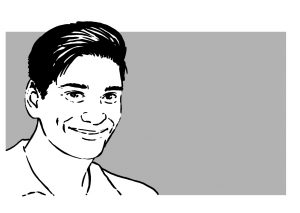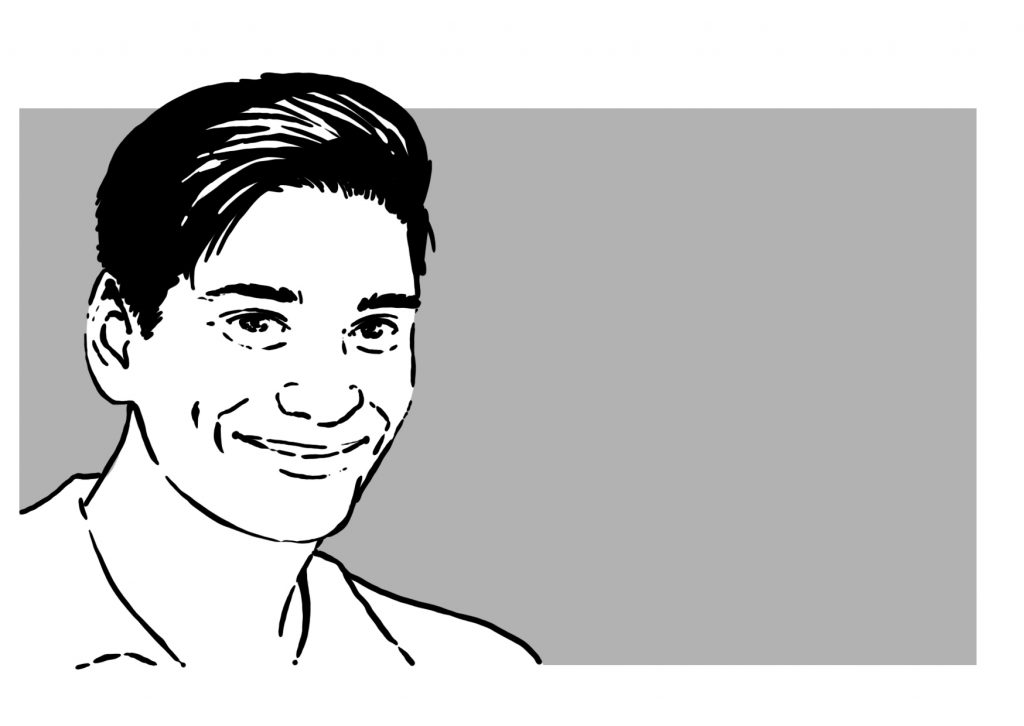Just a few weeks after Richard Thaler won the Nobel Prize in economics for his work in behavioural economics—popularised through his best-selling book Nudge— the Hertie School of Governance had the pleasure of hosting Daniel Alberto Anavitarte Santillana, one of the ‘Nudgers’ of Peru’s MineduLAB, a behavioural insights team nestled within the country’s Education Ministry.
In a packed room, Daniel Anavitarte explained how MineduLAB is reimagining Peru’s education reform while toeing the ever-precarious line between policy changes and politics. This “Nudge Unit” is the first of three labs created by the Peruvian government aimed at making positive changes by tweaking policy with insights gleaned from the study of behavioural economics, or the study of how social, psychological, cognitive and emotional factors can affect a person’s economic decision making process. Working together with partners such as the World Bank, MineduLAB makes adjustments to the government’s most prominent programmes, allowing them to create evidence-based policies while “staying clear of politics.” In other words, they don’t fight for policy preferences, they fight for policy effectiveness. Their primary objective is three-fold: to make education programmes more cost-effective, improve data collection, and most importantly, increase student performance through subtle forms of encouragement and reduction of dropout rates.
Thaler’s nudge approach, inseparable from the notion of “choice architecture” or the design by which choices are presented tweak people’s choices and to alter their behaviour in a predictable way without prohibiting their possibilities or significantly changing their economic incentives. From more ‘classic’ nudge tactics, such as sending out text messages or letters to principals putting their performance in the context of their peers, to newer approaches such as highlighting teacher absenteeism through small messages in their payslips, the MineduLAB aims to implement small, low cost adjustments that improve institutional performance.
While these tactics target the administrative and teaching side of education, the lab is equally invested in making marked improvements for the students themselves. For instance, their flagship “Grow Your Mind” program, through a coterie of nudge techniques, helps students improve learning processes. As Mr. Anavitarte explained: “your brain is like a muscle – if you train it, it will continue to improve.” The students who took part in the programme showed significant improvements on the National Assessment Test, a result that is expected to have far-reaching positive effects. Another initiative consists of encouraging parents of gifted students to further invest in their children’s education.
Nudge units are now popping up all over the world, and it seems they are here to stay. With the first one set up by David Cameron’s government in 2010, governments in the Nordic countries, Germany, Australia, a growing number of South American states, and even the White House, have all joined the rush to introduce and test behaviourally guided reforms. However, patience and diligence will be key in finding a fully accurate assessment of MineduLAB’s and other nudge projects’ effectiveness. Questions remain around the efficacy of the projects. Given the early stages of the MineduLab and other organisation’s research, data is limited. When results do come in, they are fed back into the innovation cycle— a lengthy process requiring a broad spectrum of external actors from academia and other governmental sectors to coordinate and work together.
With that in mind, should we be sceptical of nudging as a “magic bullet” solution for public policy implementation?
Despite nudging’s initial success, there are debates regarding its long-term sustainability— some claim that behavioural changes are short-lived and their effects naturally wane over time. There are also concerns relating to the ethics of nudging. These discussions focus on the thin line lying between smarter choice architecture and outright paternalism.
Cass Sunstein, Thaler’s co-author, thinks that these criticisms misinterpret nudges, and argues that any decision is inherently chosen, so one should allow space for the option that provides not only the most freedom but also the most welfare. Crucial here is the notion of Libertarian Paternalism put forward by Richard Thaler and Cass Sunstein in Nudge. As counterintuitive as those words might seem side by side, they encapsulate the idea of nudging: even though the form in which choices are presented is planned (some might argue paternalistic), it is at the same time libertarian, since all of the options are still on the table and individuals are free to choose any of them.
Whether the positive effects of the reforms will persist in the long-term, is a question that remains unanswered. Serious questions linger regarding the durability of the nudging’s effectiveness. The debate over the moral implications of nudging is certain to continue for the foreseeable future as well. For now though, Mr. Anavitarte and MineduLAB will keep innovating where they can, keep navigating the moral dilemma between choice and manipulation, and keep slowly improving Peruvian education policy nudge by nudge.
 Toby Bernstein is a class of 2019 Master of International Affairs candidate at the Hertie School of Governance. He graduated with a Master of Arts in International Relations and Linguistics from the University of Aberdeen. Always fascinated with language, politics and power, Toby has done research on topics ranging from pragmatics, to the power of language in political speeches, to Scots dialectology, and even conflict resolution in medical discourse.
Toby Bernstein is a class of 2019 Master of International Affairs candidate at the Hertie School of Governance. He graduated with a Master of Arts in International Relations and Linguistics from the University of Aberdeen. Always fascinated with language, politics and power, Toby has done research on topics ranging from pragmatics, to the power of language in political speeches, to Scots dialectology, and even conflict resolution in medical discourse.
